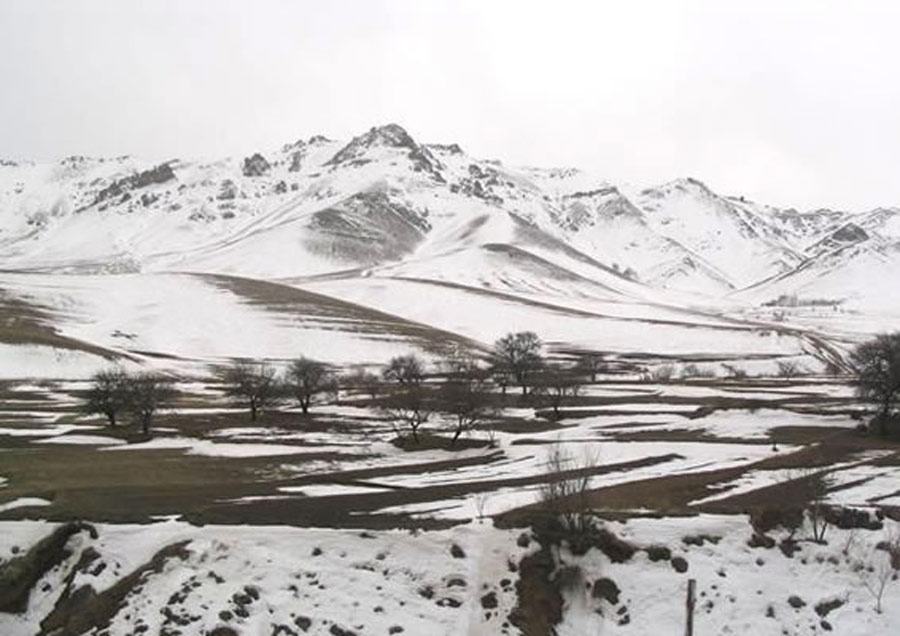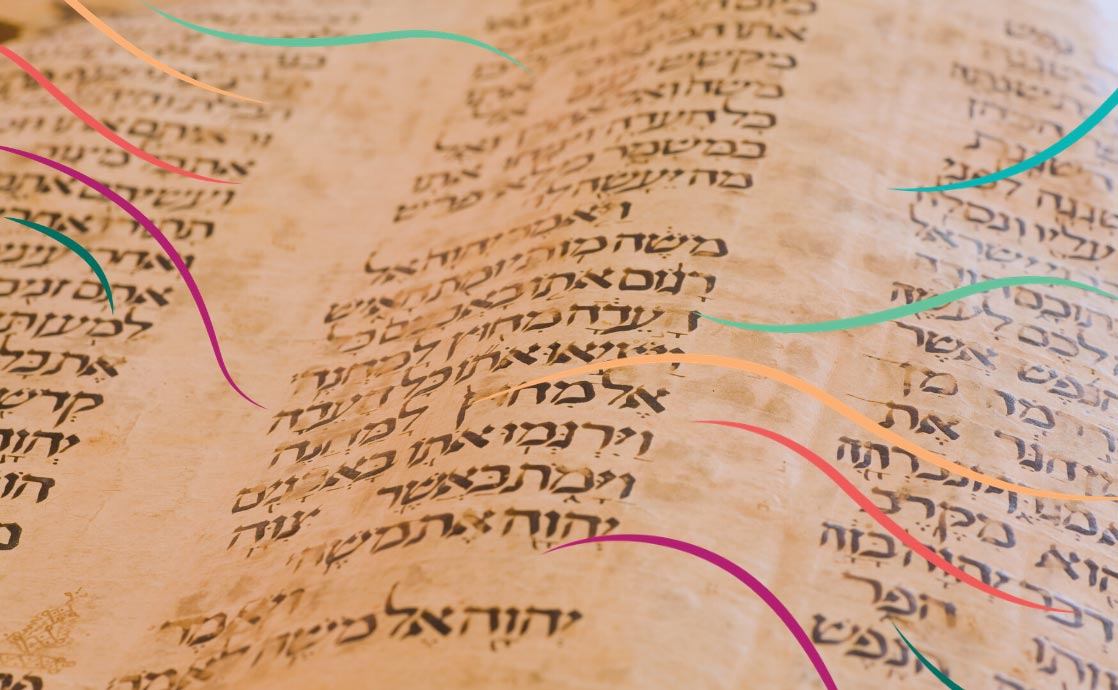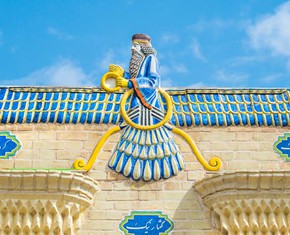The views expressed in our content reflect individual perspectives and do not represent the authoritative views of the Baha'i Faith.
If we read the prophecies of the Hebrew Bible closely and carefully, they can give us a remarkable glimpse of our modern realities – and of the advent of the Baha’i Faith.
These glimpses of the far future come upon the reader unexpectedly. For example, consider Chapter Seven of the book of Micah. Initially, the prophet Micah mourned his world as it will be after the Assyrian conquest, and laments the peoples’ sins that caused it. Then he foresaw how Israel would rise:
Rejoice not against me, O mine enemy: when I fall, I shall arise; when I sit in darkness, the Lord shall be a light unto me. Do not gloat over me, my enemy! – Micah 7:8.
As Micah continues this theme, the reader assumes that ancient Israel will regain her independence after seeing the light and righteousness of God. But then, Micah stated:
In that day also he shall come even to thee from Assyria, and from the fortified cities, and from the fortress even to the river, and from sea to sea, and from mountain to mountain.
Notwithstanding the land shall be desolate because of them that dwell therein, for the fruit of their doings.
Feed thy people with thy rod, the flock of thine heritage, which dwell solitarily in the wood, in the midst of Carmel: let them feed in Bashan and Gilead, as in the days of old.
According to the days of thy coming out of the land of Egypt will I shew unto him marvellous things. – Micah 7:12‒15, emphasis added.
Only in retrospect can we understand that Micah was referring to Baha’u’llah’s travels in exile, and how his new Faith would spiritually nourish humankind. Let’s consider the following approach to understanding these verses.
Micah said in that day he will come from Assyria. Baha’u’llah was banished from Tehran to Baghdad, the first of the four cities of his forty years of exile and imprisonment. Baghdad is located on the Euphrates River in the lands of ancient Assyria. This first phase of Baha’u’llah’s exile, in Baghdad, lasted ten years, from early winter 1853 to the spring of 1863.

Early in his banishment to Baghdad, Baha’u’llah retreated for two years to Sar-Galu, a remote mountain in Kurdistan. He first lived in poverty and obscurity in a cave, but he was soon recognized for his prodigious insight into mysticism and Sufi theology, and became esteemed by the local people.
Towards the end of his life, Baha’u’llah visited Mount Carmel, where he designated the location for the future Shrine of the Bab and revealed the Tablet of Carmel, which laid the foundation for the administrative order of the Baha’i Faith. He had traveled, as Micah prophesied, from Sar-Galu in Kurdistan to Mount Carmel, from mountain to mountain.
The second banishment of Baha’u’llah, from Baghdad to Constantinople (now Istanbul), Turkey, in 1863, lasted four months. Istanbul is located on the Bosporus Strait (which separates Europe and Asia) between the Sea of Marmara and the Black Sea. A series of defensive stone walls built by Constantine the Great was revamped and enlarged over the centuries to become one of the most complex and elaborate fortifications ever built. The route by which Baha’u’llah was taken from Baghdad to Constantinople was first by land and then by sea from the port of Samsun, Turkey, to the port of Constantinople.

The third city of Baha’u’llah’s exile – Adrianople (now Edirne) in European Turkey – housed him from 1864 to 1868. Reaching the fourth and final place of his exile, the fortified prison city of Akka, necessitated a voyage by steamboat on the Mediterranean Sea. In that voyage, Baha’u’llah went from sea to sea, over the Black Sea and the Mediterranean Sea, to reach the fortified cities of Constantinople and Akka.
Akka, then in Palestine and now in Israel, was indeed desolate after centuries of corrupt governance by the Ottoman Empire and by the indiscriminate pasturage of goats. As a penal city, Akka housed the most hardened criminals within that Empire, its prison fortress massive and forbidding. Baha’u’llah’s enemies hoped that he would not survive long in that city – most prisoners did not. Indeed, the air was so foul that there was a saying that if a bird flew over Akka, it would die. However, the spiritual presence of Baha’u’llah literally turned the tide: the currents in Akka Bay changed direction during his time there, greatly improving the air quality.
The phrase from the fortress even to the river refers to Akka and the Na’mayn River flowing through a beautiful island that Baha’u’llah called “our Green Island.” In his later years, he was sometimes able to retreat to this island and often received visitors there.
Baha’u’llah followed the injunction Feed thy people with thy rod. A biblical rod is a symbol of power. Moses had a wooden rod which tradition says he used to release water – the symbol for pure, clear spiritual teachings – from a rock in the wilderness. The iron rod was expected to be used by the Jewish Messiah, but Jesus referred to the sword of his mouth. The rod of Baha’u’llah was his “pen of revelation,” which he referred to many times, as in this passage from his writings:
The Pen of Revelation exclaimeth: “On this Day the Kingdom is God’s!” The Tongue of Power is calling: “On this Day all sovereignty is, in very deed, with God!”
The power of the pen of Baha’u’llah now emanates from the midst of Carmel, from the Baha’i World Centre on Mount Carmel, where his writings are preserved in the Baha’i archives. The days of thy coming out of the land of Egypt represent a parallel between the forty years of Moses teaching his people in the wilderness and the forty years of the ministry of Baha’u’llah, which began with his imprisonment in the dreaded Black Pit of Tehran.
Lastly, as Micah predicted, God would show unto him marvellous things. Undoubtedly not everything Baha’u’llah was shown in his revelation could be shared with humanity. However, over one hundred volumes of Baha’u’llah’s writings have been preserved, volumes that cover almost all aspects of civilization. These volumes of Baha’u’llah’s writings, according to Shoghi Effendi, the Guardian of the Baha’i Faith, are:
… replete with unnumbered exhortations, revolutionizing principles, world-shaping laws and ordinances, dire warnings and portentous prophecies, with soul-uplifting prayers and meditations, illuminating commentaries and interpretations, impassioned discourses and homilies, all interspersed with either addresses or references to kings, to emperors and to ministers, of both the East and the West, to ecclesiastics of divers denominations, and to leaders in the intellectual, political, literary, mystical, commercial and humanitarian spheres of human activity.
Amazing, right? Although perhaps not so amazing because all things – past, present, and future – are known to God. The amazing aspect might be that Micah wrote down what he did not understand, and throughout the centuries scribes continued to copy these verses that could not be understood until now.
















Comments
Sign in or create an account
Continue with Googleor